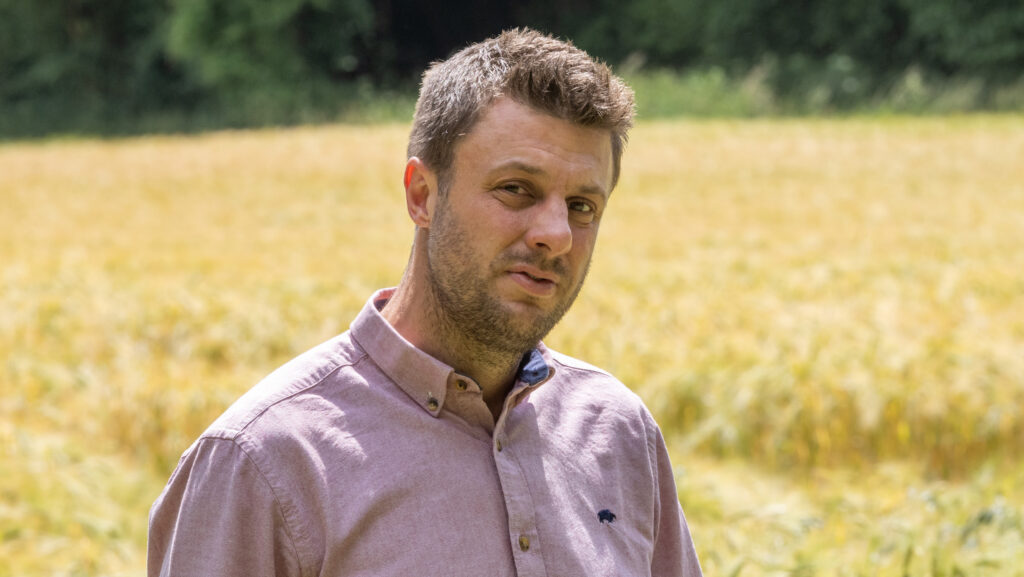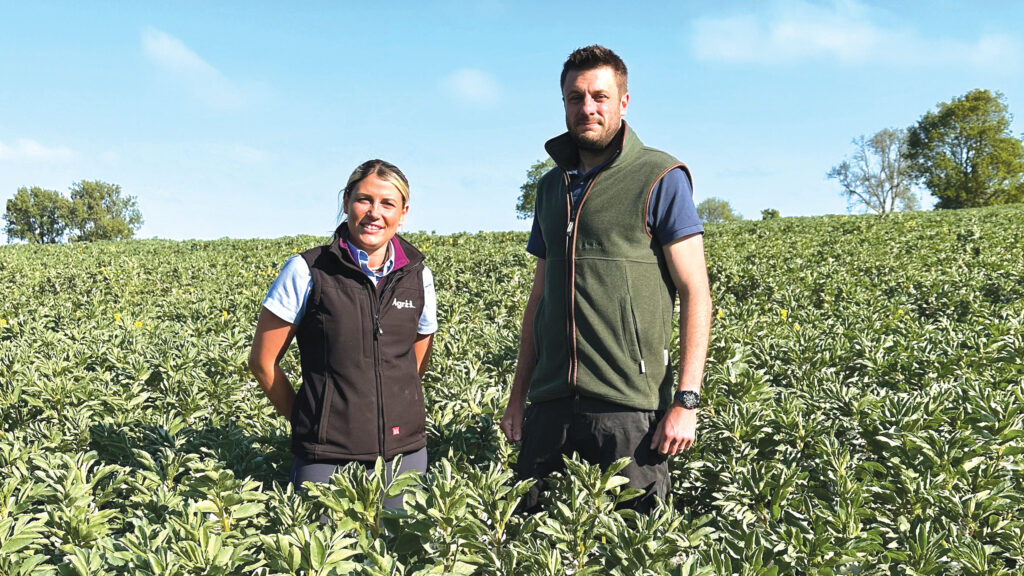Wet weather forces complex cropping decisions for agronomist
Challenging times from erratic weather and wet conditions have forced difficult decisions around direct-drilled crops this year for Agrii agronomist Todd Jex.
The past seven months have been a rollercoaster ride for Todd and his farming clients since he won the Farmers Weekly Arable Adviser of the Year award in October.

© Kathy Horniblow
For some growers, it has been a rude awakening about how difficult farming can be when the weather does not co-operate, he says.
See also: Farmers Weekly Awards 2023: Arable Adviser of the Year
Last summer after harvest, Todd encouraged many of his farming clients with fields suffering from compaction issues in no-till situations to use a low-disturbance subsoiler.
Fact file
- 13 years working as an agronomist since graduating from Harper Adams University with degree in agriculture and crop management
- 9,000ha looked after across Dorset, Wiltshire, Hampshire and Isle of Wight
- 23 farm business clients
- New national role providing technical regenerative farming advice to colleagues and clients
“Unless you’re happy to lose money for a few years while the biology and the roots put the soil right, it’s a way of avoiding that compaction issue and still have sensible and profitable crop performance,” he explains.
Soils and benchmarking
Soil health is assessed on farms every four years from a chemical, biological and physical point of view, against benchmarking data to ensure optimum performance.
Data on crop performance is collected using Gatekeeper, which is then inputted into Agrii’s long-standing MAP benchmarking group.
Those who have been farming regeneratively with soils already in better shape have suffered less in the wet conditions thanks to better drainage rates and water infiltration than those in more conventional farming systems.
Farmers on heavy ground or who have only recently changed to direct-drilling systems have encountered most difficulties, especially on headlands and compacted areas.
Todd attributes this to soils that are less well structured and have drainage issues.
On some farms with heavy land, his clients are on cropping plan number four or five due to the challenges of the wet weather.
Grassweed pressure has been very high, so herbicide programmes have needed to be robust. Disease pressure from septoria and rusts is an ongoing concern.
Todd has recommended “fairly robust” T1 and T2 fungicide sprays for clients, as he believes disease pressure has the potential to reduce yields by 30%.
The stakes are high because milling wheat premiums are strong, so the priority for many growers has been to achieve milling specification.
“We still try to make the savings where we can and maximise plant health to try to reduce reliance on fungicides, but it’s more challenging when you get a year like this one,” he explains.
Todd continues to use a drone with Skippy Scout software, especially to assess the damage to crops caused by wet conditions, alongside the handheld Yara N-tester to improve nitrogen-use efficiency.
Defra’s Sustainable Farming Incentive (SFI) scheme has been a useful option for Todd’s arable farming clients this year.
Many have been able to incorporate the scheme into their plans as they were already involved in actions that qualify for SFI payments, such as direct drilling, no insecticides or companion cropping, mostly with oilseed rape.
Open days
In June, Todd will head up a joint stand between Agrii and Weaving Machinery at Groundswell to showcase the full life cycle of growing crops within the regen system.
Then in the autumn, he will host another soils and drilling open day on a farm in Dorset, to discuss soil health and machinery options for direct-drilling systems.
Summarising his experiences of this season so far, Todd says: “Overall, it’s been very, very challenging and stressful for farmers and agronomists.
“The real challenge has been the variation and changing plans so much to adapt because the weather has been so unco-operative.
“The crops that are in the ground that have come through look well, but disease pressure is probably the highest we’ve seen in a long time.”
New national role and help for sister
Todd Jex’s company Agrii has promoted him to a new national role as a technical adviser for regenerative farming within the business.
Two days of his working month are now used in a national support capacity to provide advice on regenerative farming to colleagues and customers.
He also offers additional support over the phone. This involves providing technical advice and input into R&D around all aspects of regenerative farming and direct drilling.
Todd is helping colleagues and customers who are looking to transition into regenerative farming systems.

Todd with sister Jazzmyn © Todd Jex
Separately, He has also helped his sister Jazzmyn to become a fully qualified Facts and Basis agronomist.
She has taken over looking after some of his existing clients, which has freed him up to deal with new customers.

